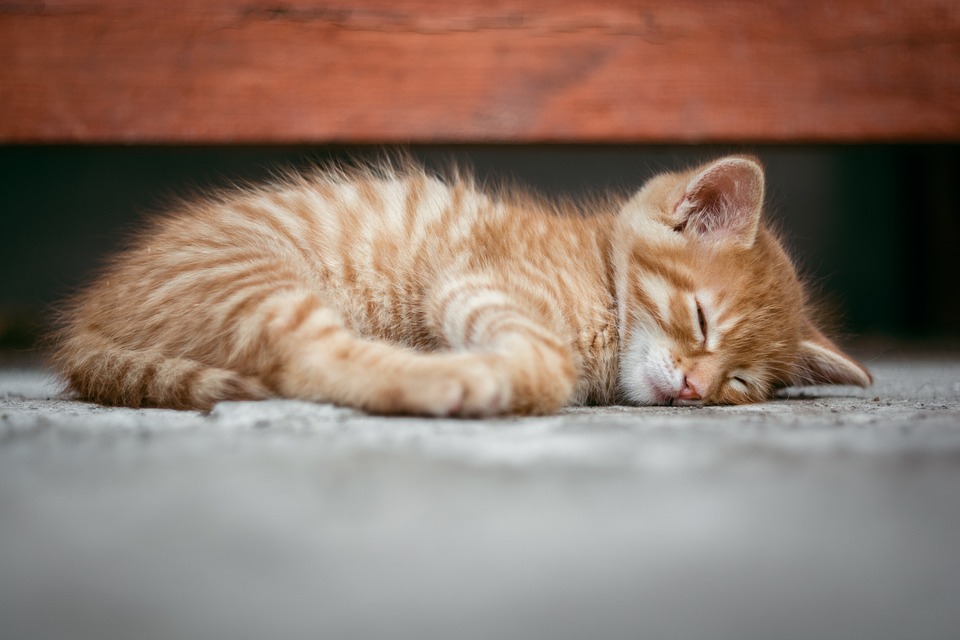**Title: Addressing Excessive Grooming in Cats Due to Stress: A Comprehensive Guide**
Introduction
Cats are known for their meticulous grooming habits, but excessive grooming can sometimes indicate a deeper underlying issue, such as stress or anxiety. In this article, we will explore the reasons behind excessive grooming in cats, understand the impact of stress on feline behavior, and provide effective strategies to address this issue. Additionally, we have included a FAQs section at the end to answer common queries related to cat behavior and stress.
Understanding Excessive Grooming in Cats
Excessive grooming refers to a behavior where cats excessively lick, chew, or scratch themselves to the point of causing hair loss, skin irritation, or wounds. While grooming is a natural behavior for cats, it becomes abnormal when it becomes obsessive and begins to harm their physical health.
Recognizing signs of stress-related excessive grooming is crucial for intervention. Cats experiencing stress may groom excessively, leading to bald patches, irritated skin, and even self-inflicted wounds. It is important to address excessive grooming promptly to prevent further physical and emotional harm to the cat.
The Link Between Stress and Excessive Grooming
Stress can have a significant impact on a cat’s behavior, and excessive grooming is often a manifestation of stress. Cats may experience stress due to various factors, such as changes in their environment, routine, or conflicts with other pets. Grooming may serve as a coping mechanism for cats to self-soothe and alleviate their stress.
Identifying the Root Causes of Stress in Cats
To effectively address excessive grooming, it is essential to identify the root causes of stress in cats. Environmental factors, such as a lack of stimulation, changes in the household routine, or conflicts with other pets, can contribute to stress in cats. By identifying and addressing these factors, cat owners can help reduce stress and subsequently decrease excessive grooming behavior.
Strategies to Address Excessive Grooming Due to Stress
Creating a stress-free environment is crucial in addressing excessive grooming in cats. Providing a safe and comfortable space for the cat, maintaining a consistent daily routine, promoting environmental enrichment, and minimizing exposure to stressors can significantly reduce stress levels.
Promoting relaxation and stress reduction techniques can also help alleviate excessive grooming. Interactive play sessions, calming pheromone products, creating a peaceful atmosphere, and using positive reinforcement techniques can help cats relax and reduce stress.
In some cases, seeking professional help may be necessary. Consulting a veterinarian can help rule out any underlying medical conditions contributing to excessive grooming. Additionally, behavioral therapy or medication may be recommended by professionals to manage stress-related grooming if necessary.
FAQs about Cat Behavior and Stress
1. Can excessive grooming cause health problems in cats? Excessive grooming can lead to skin irritation, hair loss, and self-inflicted wounds, which can potentially cause health problems if left untreated.
2. How long does it take for stress-related excessive grooming to subside? The time it takes for stress-related grooming to subside varies depending on the individual cat and the effectiveness of the interventions implemented. It may take weeks or even months for the behavior to decrease significantly.
3. Are some cat breeds more prone to stress-related grooming? While stress-related grooming can occur in any cat breed, some breeds may be more prone to stress and anxiety, making them more susceptible to excessive grooming.
4. Can stress-related excessive grooming be treated without medication? In many cases, stress-related excessive grooming can be effectively managed without medication. However, consulting with a veterinarian or behaviorist is essential to determine the best course of action for each individual cat.
5. How can I prevent stress-induced excessive grooming in the future? Providing a stress-free environment, maintaining a consistent routine, and promoting mental and physical stimulation can help prevent stress-induced excessive grooming in the future.
Conclusion
Excessive grooming in cats due to stress is a common issue that requires prompt attention and appropriate intervention. By understanding the underlying causes of stress and implementing strategies to address it, cat owners can help their feline companions lead happier, healthier, and stress-free lives. Always consult a veterinarian or a professional behaviorist for personalized guidance in dealing with excessive grooming and stress-related issues in your cat.








